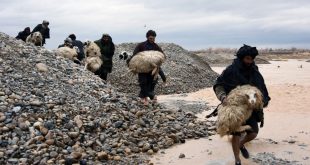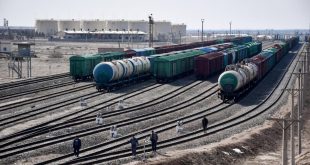Tehran, Iran — In a devastating turn of events, Iranian authorities have announced a controversial plan to deport 2 million undocumented Afghan migrants within a mere six months, following the forced expulsion of 750,000 Afghans this year alone. This decision is framed as an urgent measure to alleviate Iran’s pressing economic and security challenges but poses dire humanitarian risks for those affected.
The impending deportations predominantly threaten former officials of the Western-backed government, women, and girls who could face severe restrictions and poverty if sent back to Afghanistan, a nation already grappling with a catastrophic humanitarian crisis.
Iran is not alone in its hardline stance. Pakistan and Turkey have also escalated deportations of Afghan migrants, exacerbating an already dire situation across the region. As millions of Afghans confront the specter of return to a country beset by economic hardship, the implications ripple through neighboring nations.
Iran’s Economic Crisis Fuels Anti-Afghan Sentiment
Once a refuge for Afghans fleeing decades of turmoil, Iran now hosts an estimated 6 million Afghan migrants, yet their status is increasingly precarious. Crippling international sanctions and soaring inflation have fueled public discontent, leading to a rise in anti-Afghan sentiment. Political leaders, including newly elected President Masoud Pezeshkian, have capitalized on this unrest, promoting a narrative that blames Afghan migrants for job scarcity and rising crime. A proposed four-meter-high concrete wall along the Afghan border exemplifies the country’s tightening grip on immigration.
Social media has played a significant role in stoking these tensions, with hashtags such as “Expulsion of Afghans, a national demand” gaining traction. This populist rhetoric has fostered an environment where discrimination and violence against Afghan migrants are increasingly normalized.
Daily Struggles and Escalating Violence
Afghan migrants are facing harsh realities: discrimination in housing and employment, public hostility, and even violence. Reports of Afghan children barred from schools and bakeries refusing service to non-Iranians have surfaced, marking a disturbing trend in the treatment of this vulnerable population. Protests demanding the expulsion of Afghans have become commonplace, with both verbal and physical assaults on migrants rising sharply.
Broader Regional Context
The plight of Afghan migrants is not limited to Iran. Pakistan, which has historically hosted the largest Afghan population, has forcibly returned over 722,000 Afghans amid economic crises and national security concerns. Similarly, Turkey has ramped up deportations, sending 55,000 Afghans back to Afghanistan in 2022 alone.
As these countries tighten their borders and expel Afghans, the humanitarian implications grow more dire. The ongoing crises call for urgent international attention and action to protect the rights and well-being of Afghan migrants facing the threat of deportation.
 Afghanistan Times
Afghanistan Times




